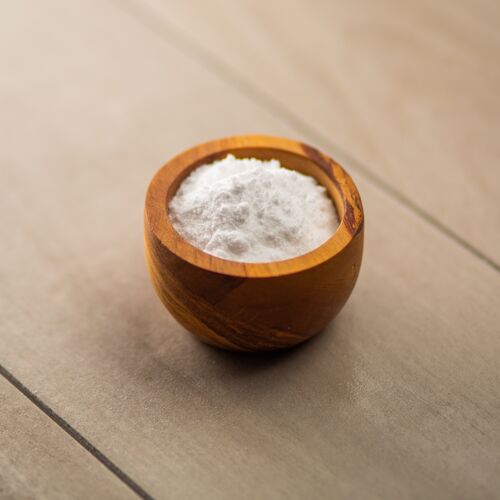Discovering Sugarcane Products: Versatile Uses and Benefits
The exploration of sugarcane items discloses a remarkable range of applications that expand well past the acquainted realm of sugar. This functional crop offers as a structure for a variety of food products, commercial materials, and even lasting energy remedies. Moreover, its byproducts provide considerable environmental advantages and health advantages that merit focus. As we examine the complex payments of sugarcane, one might wonder exactly how these varied uses can reshape sectors and lifestyles in a quickly evolving world.
Summary of Sugarcane
Although sugarcane is frequently linked largely with sugar manufacturing, it is a versatile crop with a rich history and numerous applications. Cultivated in subtropical and tropical regions, sugarcane thrives in well-drained soils and warm climates, contributing significantly to many economic climates worldwide. This seasonal turf, belonging to the genus Saccharum, can expand to elevations of as much as 4 meters, showcasing its robust nature.
Past its main duty in sugar extraction, sugarcane works as an essential resource for various byproducts. The coarse deposit, referred to as bagasse, is used for generating bioenergy and as a basic material for making paper and naturally degradable products. Additionally, molasses, a spin-off of sugar refining, is abundant in nutrients and typically used in pet feed and fermentation processes.
Sugarcane additionally plays a considerable role in standard medications and cultural methods in a number of regions, illustrating its significance past business usage (sugarcane product). Moreover, with the boosting focus on sustainable farming methods, sugarcane is being explored for its possibility in biofuels and carbon capture, placing it as a crucial player in the transition towards renewable resource sources. Therefore, the adaptability of sugarcane prolongs far past the boundaries of sugar production
Sugarcane in Food Products


Beyond sugar, sugarcane is the source of energy-rich products such as jaggery and panela, which are typical unrefined sugars used in numerous societies. These products not just sweeten foods however additionally impart unique tastes and nutritional advantages.
Sugarcane juice, a rejuvenating drink appreciated in numerous exotic regions, showcases the plant's versatility. It is commonly taken in fresh or fermented right into alcohols like rum.
In addition, sugarcane fibers, referred to as bagasse, are occasionally used to create food packaging products, emphasizing the eco-friendly advantages of sugarcane handling. Overall, sugarcane's payment to food items is multifaceted, improving tastes, offering dietary value, and playing a substantial role in culinary practices all over the world.
Industrial Applications of Sugarcane
In different industries, the flexibility of sugarcane expands much beyond its culinary applications. Sugarcane works as a vital raw product in the manufacturing of biofuels, particularly ethanol, which is increasingly used as index a renewable resource resource. This biofuel is acquired via fermentation and purification procedures, providing a lasting choice to fossil fuels and adding to a reduction in greenhouse gas discharges.

In addition, the sugarcane sector has actually located applications in drugs, where its parts are used in the formulation of various medicinal products. The all-natural substances Get More Info drawn out from sugarcane display antioxidant and antimicrobial buildings, boosting the efficacy of particular drugs.
Last but not least, sugarcane is important to the production of a variety of chemicals, consisting of glycerol and organic acids, which are important for various industrial procedures. These applications highlight sugarcane's significant duty in advertising industrial sustainability and innovation.
Ecological Advantages of Sugarcane
The diverse applications of sugarcane not only enhance commercial processes but likewise add considerably to environmental sustainability. As an eco-friendly source, sugarcane cultivation plays an important duty in carbon sequestration, soaking up considerable quantities of co2 from the atmosphere. This process aids reduce climate modification by decreasing greenhouse gas concentrations.
Furthermore, sugarcane by-products, such as bagasse and molasses, provide environment-friendly alternatives to standard materials. Bagasse, the coarse residue after juice removal, can be used as a biomass gas, decreasing dependence on nonrenewable fuel sources and advertising cleaner power resources. Additionally, molasses can be changed right into bioethanol, better sustaining sustainable power initiatives.
Sugarcane farming likewise advertises biodiversity and soil health. Sustainable farming practices, such as intercropping and plant turning, improve dirt fertility and minimize disintegration. Additionally, the plant's deep origin system aids in water retention, therefore boosting and supporting regional ecological communities resilience versus drought.
Wellness Advantages of Sugarcane
Rich in important nutrients and natural sugars, sugarcane provides many health and wellness benefits that make it a beneficial addition to a well balanced diet regimen. Its high fiber content aids in digestion, promoting digestive tract wellness and preventing irregularity. Furthermore, sugarcane provides antioxidants, which combat oxidative anxiety and may decrease the risk of chronic illness.
In addition, sugarcane juice is known for its hydrating homes, making it a superb drink option, especially in warm environments. The natural sugars existing in sugarcane provide a fast power boost, beneficial for athletes and those engaged in physical tasks. It likewise consists of essential nutrients, such as vitamin C, potassium, calcium, and magnesium, which add to overall health.
Studies recommend that sugarcane might help manage blood glucose degrees, making it a more effective sweetener for individuals with diabetes mellitus when consumed in small amounts. Additionally, its anti-inflammatory buildings can support liver wellness and aid in cleansing.
Conclusion
In verdict, sugarcane arises as an extremely functional plant with significant payments to numerous industries. The byproducts of sugarcane, such as bagasse and molasses, help with green techniques, while its health advantages improve total health.
Although sugarcane is frequently connected largely with sugar production, it is a functional plant with an abundant history and numerous applications.Beyond its key role in sugar removal, sugarcane offers as a vital source for numerous more helpful hints by-products. Primarily understood for creating sugar, sugarcane is transformed into granulated sugar, brownish sugar, and molasses, each offering distinctive cooking objectives.Rich in all-natural sugars and essential nutrients, sugarcane offers various health and wellness advantages that make it a useful addition to a balanced diet regimen. The natural sugars present in sugarcane supply a fast energy boost, useful for professional athletes and those engaged in physical tasks.